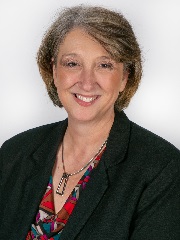Critical access hospitals reap benefits of HFMA Enterprise Membership
More than 60 organizations have joined HFMA’s Enterprise Membership program for critical access hospitals since its inception last October, gaining access to valuable resources that otherwise might be out of reach.
No matter the size of an organization, cost and availability are potential barriers to accessing resources and tools that help leaders and employees better understand industry challenges and manage their career development.
At critical access hospitals (CAHs) — which under CMS’s designation are rural hospitals with 25 or fewer inpatient beds — these barriers can be even more significant.
Rolled out in October 2019, HFMA’s new Enterprise Membership program for CAHs removes these barriers by providing an all-inclusive, single-price membership for an organization. As of March, 67 CAHs had become HFMA Enterprise members. (Among that tally, 44 hospitals are part of the Heartland Health Alliance in Nebraska and seven are part of the Maine Rural Health collaborative. Each group joined the Enterprise program collectively, but the individual hospitals have their own membership.)
For one fee, Enterprise membership offers access to educational materials and publications, discounts on registration for national and chapter events, and other resources for all employees.
An ability to train more people at a low cost

“There are just so many benefits associated with this program,” said David Muhs, CFO of Henry County Health Center (HCHC) in Mount Pleasant, Iowa. The CAH, a four-time MAP Award winner, joined HFMA under the Enterprise program in December.
Although Muhs has been an HFMA member for almost 30 years, only two to three others at HCHC have been members at any given time.
Now, Muhs plans to encourage staff in registration, centralized scheduling and patient financial services to take advantage of HFMA’s career development programming. “Certification was a big bonus for us. We can train a lot of people at a very low cost,” he said. “If you have an educated staff, they understand the whole
culture better, the whole industry better.”
Muhs said HCHC leadership is considering increasing compensation for employees who become certified through HFMA. He also plans to encourage the hospital’s chief executive, nursing and operating officers to take advantage of the informational resources offered through the Enterprise program.
“I’d like to broaden users to include the C-suite,” he said.
An opportunity for face time with industry peers

Like Muhs, Kim Alvis, CFO of Kirby Medical Center in Monticello, Illinois, said her organization joined the Enterprise program because of the educational resources that membership provides at an affordable price for revenue cycle staff. Another benefit is networking opportunities.
“We have a broader membership now, so we’re looking at programs at the local chapter or even that [HFMA] National puts on,” she said.
In late March, Alvis planned to accompany a group of 18 to the Women’s Conference hosted by the McMahon-Illini Chapter, citing the event’s proximity and reasonable price, before the conference was postponed due to the coronavirus outbreak.
Such events enable employees at CAHs to connect with their peers at other organizations, which can be challenging in rural locations, Alvis noted. These get-togethers offer the opportunity for an exchange of ideas on new strategies, tools and processes that may help employees in their work, she said.
“So, let’s get them out of the office,” Alvis said. “Let them meet other people in our area that do their same job so they can make those networking connections.”
A broadening of perspectives
HFMA resources can provide revenue cycle staff and others with a better perspective on pertinent trends and issues beyond the revenue cycle arena. Muhs often would pass along HFMA
articles and other content to employees but found choosing what to send time consuming. Now, he said, employees can access the information on their own.
“Through some past training, they’ve been very engaged with what HFMA is about, but not to the granular level that I am,” Muhs said. “So hopefully they’ll get more education, more resources out of the material that HFMA puts out.”
Alvis said resources such as hfm magazine, the website and webinars provide a “wealth of information” that educates employees on industrywide trends — information to which staff otherwise would not have easy access. She is considering having health information management leaders take advantage of Enterprise Membership resources.
“It’s important to understand more of the global picture, and HFMA helps employees understand the global as well as the specific,” she said.
“The more information people have, the better employees they are and the better we’ll be able to address change as we go forward.”





